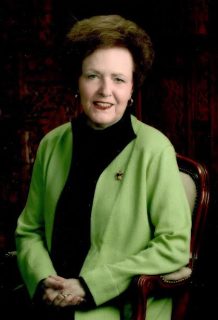Women will find hope at new Bowling Green program
Published 12:00 am Wednesday, March 2, 2022
When Hope House, a faith-based development center in downtown Bowling Green, approached me a couple of years ago about support for its new initiative Program Living for Women, I felt strongly this was a worthy organization with a mission that meets the moment.
At the time, Program Living for Women was just a proposal. Hope House was a well-established ministry, with eight programs and two enterprises including case management, an employment readiness class, a financial management class, a parenting class, a work transportation shuttle, an affordable car purchasing program, a Christmas assistance program, residential addiction recovery, a thrift store called Community Store and New Leaf, which provides workforce development opportunities. And yet, this expansive development center sought to do even more.
This week, Hope House brought to life Program Living for Women, a 12-month residential recovery program for women facing addiction, incarceration, homelessness, and abuse, and I was honored and privileged to be among the first to tour this remarkable project.
I use the word “remarkable” not just because of the ambitious vision set forth by the Hope House team, but also because, unlike many nonprofits that were diminished or shuttered because of the unprecedented challenges presented by COVID-19 and the subsequent economic shutdown, Hope House defied the odds and continues to grow its mission to alleviate physical and spiritual poverty through gospel restoration.
My husband, Sen. Rand Paul, and I have long advocated for criminal justice reforms and alternatives to incarceration for low-level, non-violent offenders, especially those struggling with addiction. And as Christians, we believe strongly in the power of redemption. That is why I agreed to serve on the board of the Coalition for Public Safety, a bipartisan nonprofit organization that brings together advocacy groups across the political spectrum, including law enforcement leaders, impacted voices, business associations and faith leaders in support of criminal justice reforms and second chance opportunities.
When the Coalition for Public Safety issued a request for proposals from groups with innovative projects consistent with the coalition’s mission and announced it would award grants of $100,000 to the best proposals, we hoped to receive at least 10 solid projects. We were shocked when more than 100 proposals rolled in from well-respected groups from all over the country. Competition for the grants was fierce.
But my fellow coalition board members and I were unanimous in our determination that Hope House of Bowling Green should be awarded one of the grants. This project’s focus on women was timely and addressed a crisis in our country’s justice system that doesn’t get the attention it deserves.
Women are the fastest-growing segment of the incarcerated population, and one in four women entering our justice system is either pregnant or a mother to a child under age 1. So, we are not only facing a growing epidemic of incarcerated women, but also a crisis of children who will be raised without their mothers.
Sadly, Kentucky ranks as one of the top states in the country in the percentage of children with an incarcerated parent.
We can, and must, do better.
Projects like Hope House’s Program Living for Women are a great start. It will come as no surprise that a significant driver behind the surge in incarcerated women is drug addiction. Not only will this facility provide addiction recovery classes, it will also offer Bible study, individual counseling, physical fitness, employment development, family visitation, peer-to-peer mentoring and after care.
Hope House never stops looking for innovative ways to serve disadvantaged people. Future plans for the property that houses Program Living for Women and the adjacent property include eight-plex apartment complexes for residents who regain custody of children during programming, a new ministry center that will house the bulk of Hope House’s ministries and a transitional housing community with 10 to 15 tiny homes for the homeless.
I am so proud to be a small part of the incredible achievement that is Program Living for Women, and I am grateful that Bowling Green is home to Christian servant-leaders at the Hope House who are every bit as committed and tenacious as the vulnerable people it seeks to serve.
– Kelley Paul is an author and advocate who serves on the board of the Coalition for Public Safety, the nation’s largest bipartisan nonprofit organization uniting diverse voices behind criminal justice reform. She and her husband, Sen. Rand Paul, live in Bowling Green.






